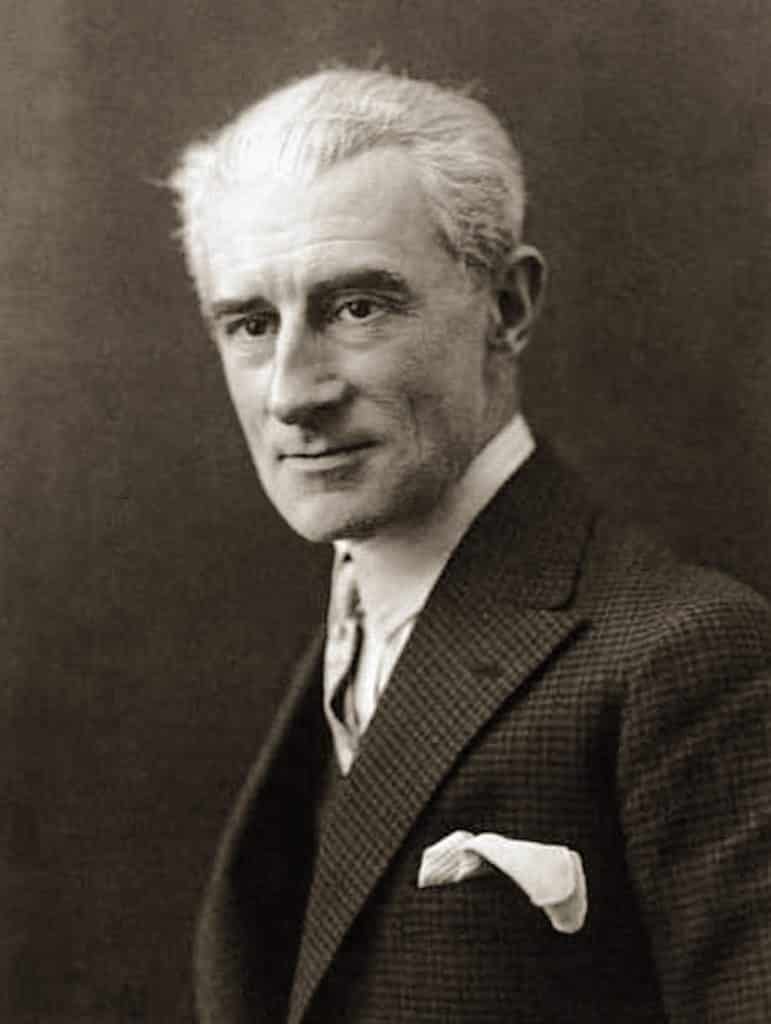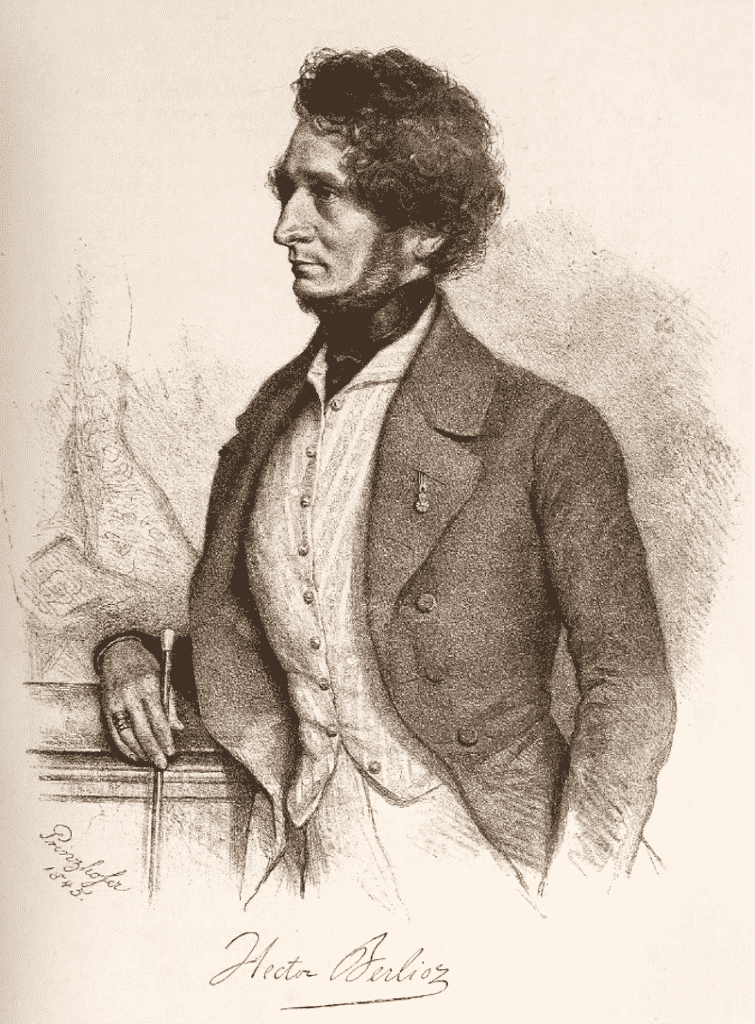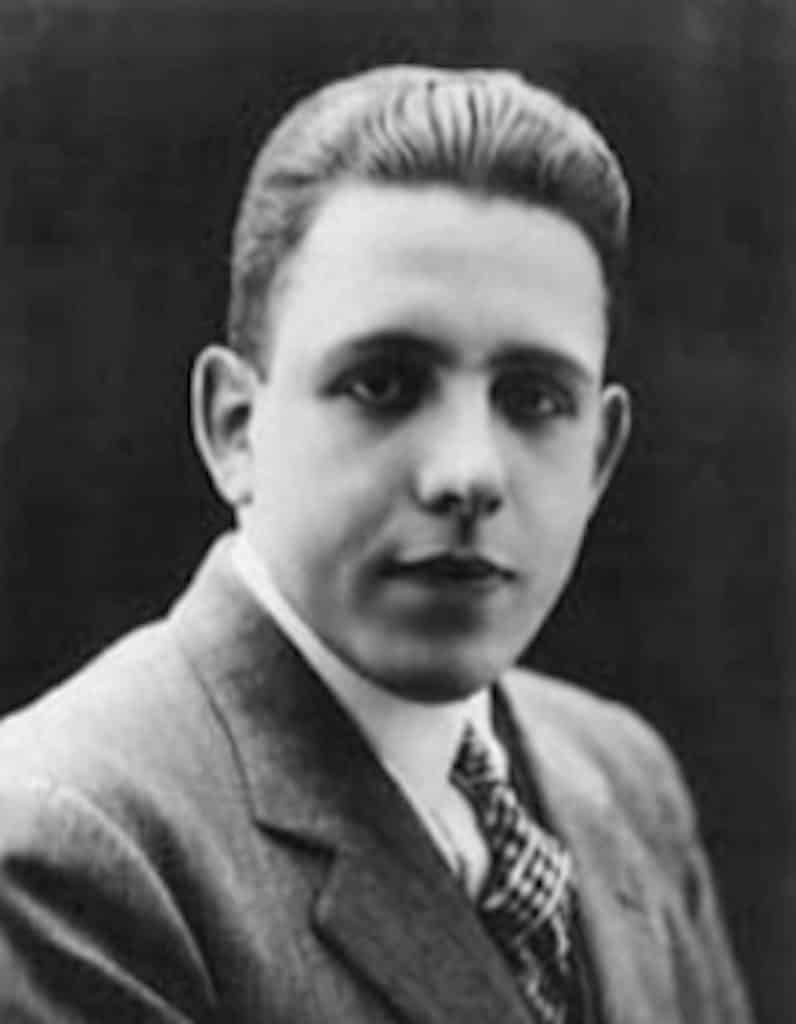Many people know about the French impressionist painters of the 19th century, like Monet and Renoir, but what many do not know is that France was also an influential country for classical music.
In this blog post, we will be looking at the greatest french composers from classical music and discussing their huge contributions to this genre of art form.
1. Claude Debussy
One of the most famous French composers of all time, Claude Debussy, was born in 1862 in Seine-et-Oise, a suburb of Paris.
He began learning the piano at the age of seven, and by the time he was ten years old, he was studying at the Conservatoire de Paris.
Although he didn’t like the term, Debussy’s style of composition is often labeled as impressionist after the art movement in the 19th century. This meant that his music was often ambiguous and used things like the whole tone scale and symmetry to create this.
Debussy wrote a number of famous pieces but probably his most well-known contribution to classical music is “Clair de Lune” for solo piano. Other notable pieces include “Suite Bergamasque”, “Deux Arabesques”, “La Mer”, “Prélude à l’Après-Midi d’un Faune” and “La Fille aux Cheveux de Lin.”
Debussy died from cancer on March 25th, 1918, at the age of 55, after a career spanning 30 years. He is buried at Passy Cemetery, Paris, France.
2. Erik Satie
Known for his humorous and eccentric style, Erik Alfred Leslie Satie was a French musician from the same generation as Debussy.
He was born in Honfleur, a small fishing port in Normandy, France in 1866 and began his musical education under a local church organ player at age six. He soon
He enrolled in the Paris Conservatoire at 13 years old but was dismissed after two and a half years. He briefly joined the French military, then became a struggling pianist at the Le Chat Noir Cafe-Cabaret.
Satie was an eccentric dadaist, and his compositions were the precursor to the Theatre of the Absurd and minimalist and repetitive music. His compositions closely align with the artistic Surrealist and avant-garde movements and break away from 19th-century French Romanticism.
Some of his best works include Trois Gymnopédies (1888) and Trois Gnossiennes (1890), which are very famous now. But Satie was only recognized as a genius composer about a decade later after his death in 1925.
His 84 musical works greatly influenced 20th-century French composers and the school of Neoclassicism.
3. Maurice Ravel

Next up we have Joseph-Maurice Ravel who was born in Ciboure, near Biarritz in southwest France in 1875.
As one of the most popular French composers during his day, Ravel was internationally considered France’s greatest living composer in the 1920’s and 30’s.
He grew up in a family that loved music with his mother’s basque heritage influencing his music greatly.
At 14 years old, he took courses at the Paris Conservatoire and studied under various teachers including Gabriel Fauré but was eventually expelled for not excelling. It was then that he focussed on composing.
He admired Satie’s early pieces and some of his earliest compositions were reminiscent of Satie’s style. Probably his most famous piece however was Bolero which was originally from a ballet he composed.
Ravel sadly died in a car accident in Paris in 1937 at the age of 62 after a career spanning 34 years.
4. Hector Berlioz

The French Romantic composer Hector Berlioz was born Louis-Hector Berlioz in 1803 in La Côte-St-André, Isère, France.
As a child, he loved music and learned how to play the guitar and flute. He entered the Paris Conservatoire in 1826 and attempted to win the Prix de Rome, France’s most prestigious music prize, but lost four times. He finally won the prize in 1830 with his cantata La Mort de Sardanapale (1830).
Berlioz’s first major success was with Symphonie Fantastique, which premiered in 1830. Other renowned works of his include Harold En Italy (1834) and La Damnation de Faust (1846).
Though Berlioz did not find consistent success as a composer in France, he gained an international reputation as a conductor.
5. Camille Saint-Saëns

Camille Saint-Saëns was a child prodigy and gifted pioneer of French music. He was born as Charles-Camille Saint-Saëns in 1835 in Paris, France.
Saint-Saëns is remembered best for being the first Frenchman to compose symphonic poems.
At the Paris Conservatoire, he studied organ and composition where he performed his Symphony No. 1 in 1855.
After graduating, he became an organist at the famous Église de la Madeleine in 1857 and stayed connected with the Parisian church for 20 years.
He became a piano professor at the Niedermeyer School in 1861 until 1865.
In 1871, he was one of the founders of the National Society of Music after the Franco-Prussian War.
Saint-Saëns toured extensively through Europe, South America, the United States, the Middle East, and East Asia both performing and conducting.
Saint-Saëns is probably most known these days for his The Carnival of the Animals, a suite of 14 different compositions based on different animals. The most famous is probably the Swan.
From about 1880 until his death, he produced works across all fields of instrumental and dramatic music. He died on December 16, 1921 in Algeria.
6. Guillaume de Machaut

No list is complete without one of the most significant French composers from the 14th century.
Medieval composer Guillaume de Machaut was not only a gifted musician but an influential poet in the ars nova style.
Machaut was born around 1300 in the region of Reims.
He became the courtier to John I, Count of Luxembourg and the King of Bohemia for at least fifteen years.
In 1337, he became a canon and composed music for the church.
His Messe de Nostre Dame is one of the earliest known settings of the Ordinary of the Catholic Mass. He also wrote about 400 poems and developed secular song forms, including ballades, rondeaux, motets, and lais.
The majority of his poems and lyrics were not set to music.
However, the songs he composed always dealt with courtly love.
Ma fin est mon commencement is one of his best known rondeaux for its clever form.
Machaut survived the Black Plague and spent the latter years of his life writing manuscripts and composing.
He died in 1377 and was remembered in elegies written by other composers.
7. Georges Bizet

Bizet was born in 1838 in Paris with the name Alexandre-César-Léopold Bizet. However, he was baptized Georges Bizet, by which he was known.
His family was happy and very musical, teaching him to read music and hone his musical talents early in life.
He entered the Paris Conservatoire at ten years old and within six months won the first prize in solfège.
When he was seventeen, he wrote his first symphony, Symphony in C Major.
In 1852, he won first prize in piano and then the renowned Prix de Rome in 1857.
After winning the coveted scholarship award, he studied in Rome for three years and developed his musical talents.
There, he wrote the opera Don Procopio and composed more works and operas upon his return to Paris.
His best known opera is Carmen, which was produced in 1875. Although it was not well-received upon its premiere, it later, after his death, became one of the most popular operas in the world.
Bizet, unfortunately, did not get to see his success and died in 1875 at age the young age of 36.
8. Francis Poulenc

Francis Jean Marcel Poulenc was born on January 7, 1899 in Paris to a wealthy family that manufactured pharmaceuticals.
Music was part of his family life, and his mother taught him how to play piano at a young age.
Poulenc made his debut in 1917 with Rapsodie nègre.
He was impressed by the eccentric style of Erik Satie and sought to embrace the techniques and manners of Dadaism in his compositions.
He served in the French army from 1918 to 1921, and then took composition lessons with Koechlin from 1921 to 1924.
He became a piano accompanist to Pierre Bernac, a French baritone, in 1935, and wrote several songs for him to sing.
From 1936 to the latter years of his life, Poulenc composed more somber religious music for the organ and choirs.
He died on January 30, 1963 from a heart attack.
9. Jacques Offenbach

Though he was born in Germany, Jacques Offenbach played a large part in the French music scene.
He is known as the father of the operetta, and his works were often satirical, witty, and high-spirited.
Offenbach was born in 1819 in Cologne, Germany as Jacob Offenbach.
He was one of ten children and showed musical talent as he took lessons from local teachers and performed in restaurants with his siblings.
In 1833, his father took him and one of his brothers to Paris to receive more musical training and opportunities.
Offenbach’s first position was as a cellist for the Opéra Comique, and he soon became immersed in the musical entertainment industry as a conductor, composer, and manager.
He served as the musical director for seven years at the Comédie Française.
He wrote and produced almost 100 operettas from 1855 onwards where he satirized pretentious artistic snobbery and political figures of the time.
He died on October 5, 1880 at age 61 from heart failure.
10. Gabriel Fauré

As one of the most notable French composers of his generation, Gabriel Fauré’s style of music influenced many composers in the 20th century.
He was born on May 12, 1845 into a cultured family. At nine years old, he attended Ecole Niedermeyer, the Paris school for church music. There, he trained to be a choirmaster and church organist.
One of his teachers was Camille Saint-Saëns, with whom he maintained a lifelong friendship.
He became an organist and teacher after graduating from the college and later held prominent posts as the Paris Conservatoire director and the organist at the famed Église de la Madeleine.
He composed most of his highly regarded works later in life that had more melodically and harmonically complex styles.
Towards the end of his life, he was known as the leading French composer of his time in France.
Unfortunately, he died of pneumonia on November 4, 1924 at 79 years old.
11. Élisabeth Jacquet de la Guerre

Hailed as the first woman in France to compose an opera, Élisabeth Jacquet de la Guerre was a French composer, organist, and harpsichordist.
Her wealthy family consisted of musicians and instrument-makers on March 17, 1665 in Paris.
When she was five years old, she performed in Louis XIV’s court.
Throughout her teenage years, she was educated as part of the French court until they relocated to Versailles.
She married in her early twenties and composed, taught, and successfully performed concerts in her home and around Paris.
In 1694, her tragédie lyrique, Céphale et Procri, premiered at the Paris Opéra.
The music for the opera was published in the same year, and though it was not very successful, she gained distinct recognition as the first woman in France to write an opera.
Jacquet de la Guerre had the rare opportunity to become a successful female composer, and her contemporaries recognized her talent during her lifetime.
Today, only her early violin and viola da gamba sonatas and trio sonatas survive as manuscripts in Paris.
Summing Up Our List Of Great French Composers
There are many French composers who have left their mark on the world.
It is difficult to narrow down a list of only eleven, but we hope that these examples provide you with just enough information about this genre and its history in France.
We hope it help you to know a bit more about the composers that have had the most influence on music history.
